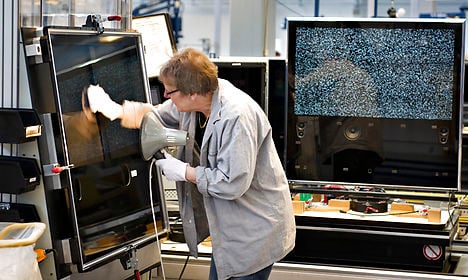BUSINESS
Bang & Olufsen shares soar on news of buyout
Denmark could lose one of its best-known global brands after Bang & Olufsen reported that it may be partially or completely sold.
Published: 27 November 2015 08:31 CET

B&O's production facility in Struer. Photo: Henning Bagger/Scanpix
Shares in Bang & Olufsen, the Danish firm that produces upmarket sound systems and high-end televisions, soared on Thursday after the company said it was in talks with a potential buyer.
The news was music to investor's ears, sending the firm's shares up by more than 25 percent on the Copenhagen Stock Exchange in afternoon trading, in a slightly firmer overall market.
“The company has initiated a dialogue to investigate and analyse the firmness of these approaches,” it said in a statement, without giving any further details.
Bang & Olufsen has posted annual losses over the past three fiscal years as more people listen to music on their mobile devices and after failing to attract younger consumers.
Its two biggest shareholders are Dutch insurer Delta Lloyd, which holds a 14.7 percent stake, and Danish pension fund ATP, which holds 12.4 percent.
Url copied to clipboard!


 Please whitelist us to continue reading.
Please whitelist us to continue reading.
Member comments